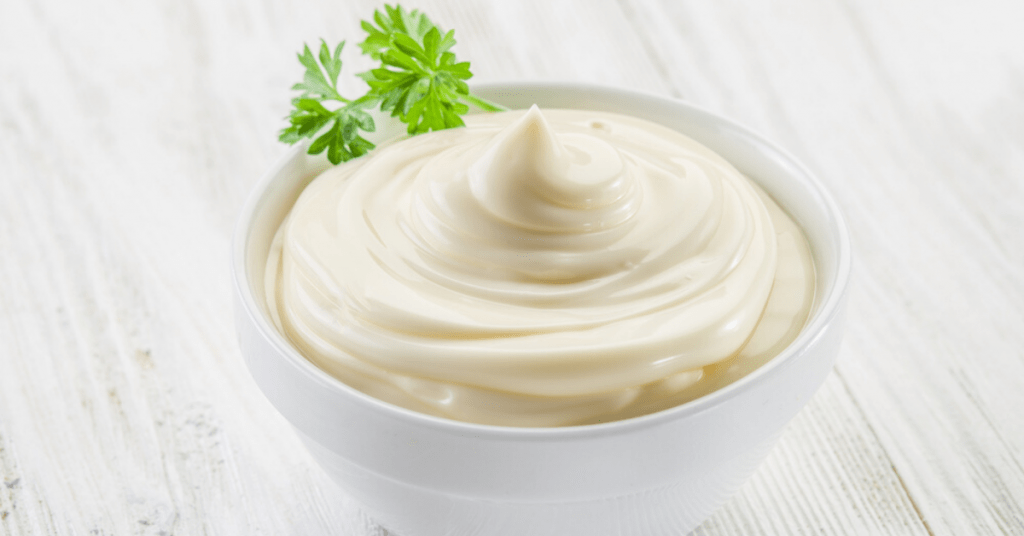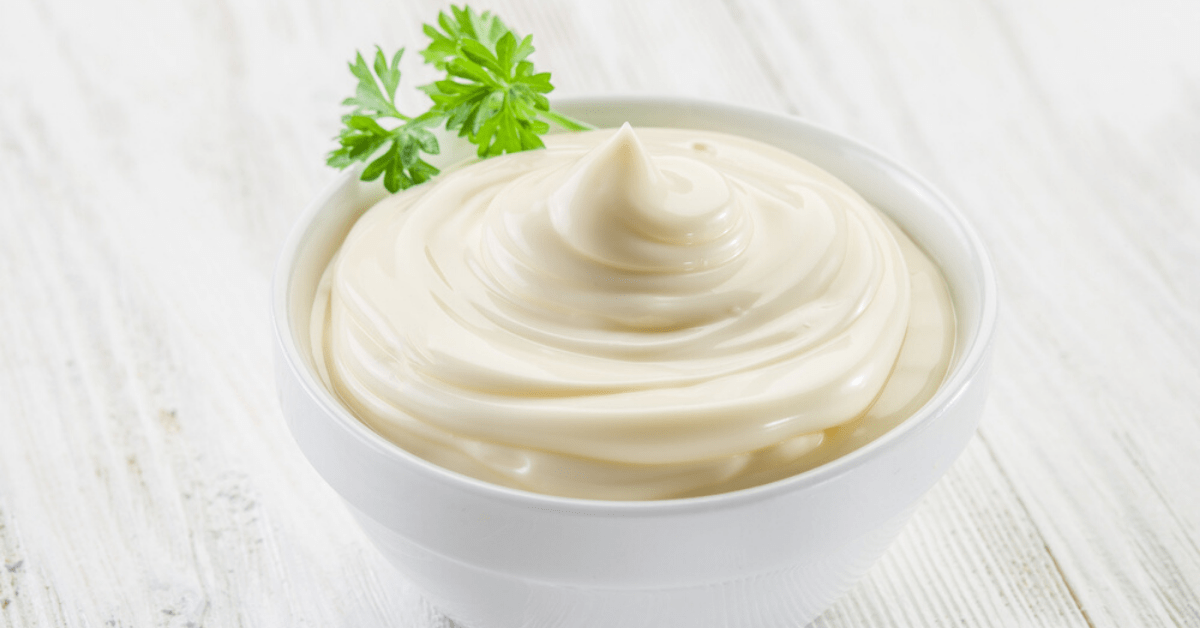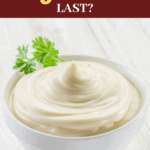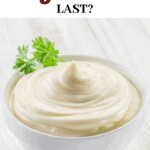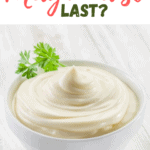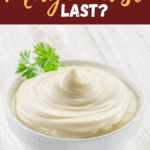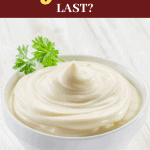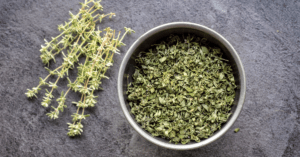Question: How long does mayonnaise last after opening? Or how long does it last unopened?
To many, including myself, it seems like mayo lasts forever. But every jar of mayo has a “best by” date, so that must mean something, right? But will it actually go bad past that date?
If you’re curious to know more about this creamy condiment, you’ve come to the right place. In this article, we’ll talk about mayo’s shelf-life and how it should be properly stored. We’ll also discuss how to check if it’s still fresh or not.
So, how long does mayonnaise last? Keep reading to find out!
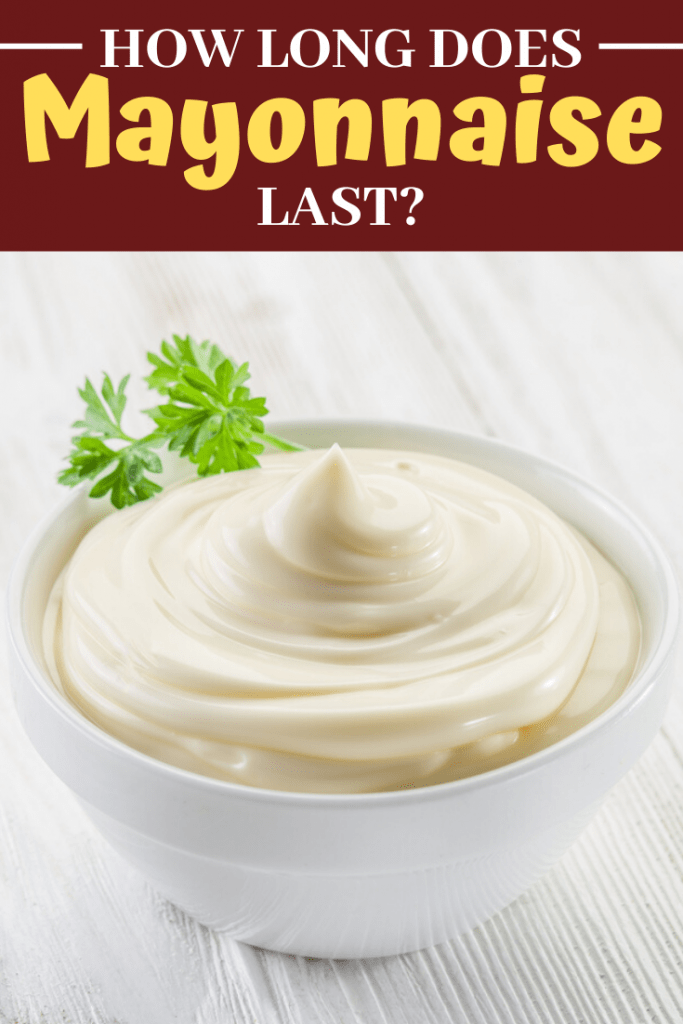
How Long Does Mayonnaise Last?
Mayonnaise contains egg yolks, oil, and vinegar or lemon juice. Apart from the eggs, the rest of its elements can last for over a year without spoiling. To gauge how long your mayonnaise will last, check the label on the jar!
But don’t confuse the mayo’s “best by” date with “date of expiration” – those are two very different things. The “best by” date merely refers to the day until when the product will remain at peak quality. This means that you can still consume it even past that date.
Since mayo has such long-lasting ingredients and preservatives, it will last for 2-3 months past the date, especially when unopened. If by this time, you notice that the oil starts to separate, all you need is to stir it to reconstitute it.
It’s not clear how long exactly it will last past the “best by” date, though. This depends on the quality of the ingredients used in the mayo. For instance, if the mayo contains little preservatives, it won’t keep well as long as one with tons of them.
Apart from the date, the freshness of mayonnaise also depends on how you store it. For instance, a refrigerated jar of opened mayo will last for 2-3 months after its “best by” date. At room temperature, though, you’ll want to throw out that mayo if it’s been sitting there exposed to bacteria for over 8 hours.
Now, you might wonder: how about homemade mayo? Since you probably used raw eggs (unlike commercialized mayo that uses pasteurized eggs), don’t expect it to last as long. Homemade mayo will keep fresh in the fridge for one week.
Lastly, let’s talk about the myth about mayo-infused foods. You’ve probably heard somewhere that adding mayo to your sandwich or salad will make it go bad faster than others. We’re here to debunk that rumor.
You see, mayonnaise is highly acidic. These properties prevent bacteria from growing in it, so it’s highly unlikely that it will cause other foods to go bad!
You know what will, though? The rest of the ingredients you put in your food! So don’t blame mayonnaise if you get food poisoning from your food. It’s most likely because you ate food that’s been sitting out in warm temperature for hours.
How to Store Mayonnaise
Keep unopened mayo jars at cold temperature and in a dry place. A perfect place would be your pantry or a kitchen cabinet. You need not refrigerate your mayo at this point, but you can if you prefer to.
Once you’ve opened the jar, it has to stay in the fridge, tightly sealed. Unlike other condiments such as mustard or ketchup, you should not store an opened mayo jar at room temperature.
How to Tell if Mayonnaise is Bad
If you’re one of those who don’t use it often, your jar of mayo could sit untouched in the pantry or fridge for months. When you finally find a need for it, you realize just how long you’ve had it, and wonder if you can still consume it.
To put your mind at ease, here are some guidelines to check for mayo’s freshness:
Check how it looks. If you find molds or spores (especially at the neck of the jar) – it’s time to discard it. If it looks darker or brownish yellow, that’s not a good sign either.
Check for the smell. If it emits an off odor – whether putrid or acidic – say goodbye.
Last, check how it tastes. If its flavor is a little off, don’t use it! You wouldn’t want a weird-tasting sandwich or salad, anyway.
To sum up: if you’re in doubt, throw it out!
Finally, let’s talk about proper usage a little bit. Even though mayo has quite a long shelf-life, doesn’t mean you can take food hygiene for granted.
First of all, always scoop up mayo with a clean spoon that’s dedicated only for it. Do not use the same utensil on other food items unless you want to risk cross-contamination.
Don’t double-dip, either! This may cause bacteria to come in contact with your mayo, which will cause it to spoil sooner than it should.
